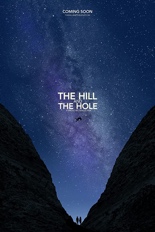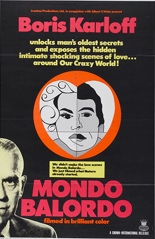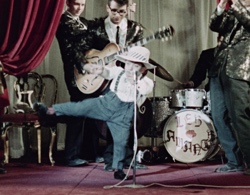
 Fritz Leiber Jr. was a moderately popular speculative writer whose novels and stories were adapted for Rod Serling’s Night Gallery TV series and films such as Burn, Witch, Burn and Weird Woman. His 1942 tale “The Hill and the Hole” is also the basis for this recent atmospheric indie flick of the same name, a bizarre yarn of the Southwest that hard to fully grasp, but harder to quit watching.
Fritz Leiber Jr. was a moderately popular speculative writer whose novels and stories were adapted for Rod Serling’s Night Gallery TV series and films such as Burn, Witch, Burn and Weird Woman. His 1942 tale “The Hill and the Hole” is also the basis for this recent atmospheric indie flick of the same name, a bizarre yarn of the Southwest that hard to fully grasp, but harder to quit watching.
Archeologist Tom (Liam Kelly), working for the Bureau of Land Management out in the deserted desert of New Mexico, finds a topographical anomaly: an oversized hill completely missing from area maps. Seems that the locals will do anything to protect that mysterious mound, including walloping Tom upside the head and leaving him for dead.
 He narrowly escapes, but is met with strange characters and stranger scenarios, most of which are impossible to tell if they’re due to the town or Tom’s possible brain damage. Basic discussions turn into psychic breakdowns; local characters turn into conspiracy theories; and that hill, as you could guess, ain’t what it seems to be.
He narrowly escapes, but is met with strange characters and stranger scenarios, most of which are impossible to tell if they’re due to the town or Tom’s possible brain damage. Basic discussions turn into psychic breakdowns; local characters turn into conspiracy theories; and that hill, as you could guess, ain’t what it seems to be.
To be honest, I still don’t know what it is.
Visually, The Hill and the Hole is a gorgeous slice of oddball Americana, capturing a fever dream where everything is ordinary, but the closer you look, out of the ordinary. Everything, that is, except for the mostly amateurish acting that, at times, can lead to more wincing than wonderment.
Still, this low-budget flick is an idiosyncratic and incongruous sojourn to the deepest recesses — literally — of a perplexing pile of dirt, a brain-boiler that will leave far more questions than answers, but I suspect that was probably the point. At least I hope it is. —Louis Fowler


 It’s not like
It’s not like  Yes, God, Yes holds some precedent with 2004’s
Yes, God, Yes holds some precedent with 2004’s 


 With actor Dave Franco casting his wife, Alison Brie, in his directorial debut, one can’t help but wonder, “How much of this is autobiographical?” For their sake of their union, I hope the answer is “none,” because no character in
With actor Dave Franco casting his wife, Alison Brie, in his directorial debut, one can’t help but wonder, “How much of this is autobiographical?” For their sake of their union, I hope the answer is “none,” because no character in  Without getting into specifics that would spoil the film, the house — again, amazing — offers neither the serenity nor the sanity the couples seek. One red flag is the discovery of what appears to be a camera lens embedded in the showerhead. In the process, given the criss-cross-applesauce nature of the foursome, the lines of their relation to one another are bound to be redrawn.
Without getting into specifics that would spoil the film, the house — again, amazing — offers neither the serenity nor the sanity the couples seek. One red flag is the discovery of what appears to be a camera lens embedded in the showerhead. In the process, given the criss-cross-applesauce nature of the foursome, the lines of their relation to one another are bound to be redrawn. 

